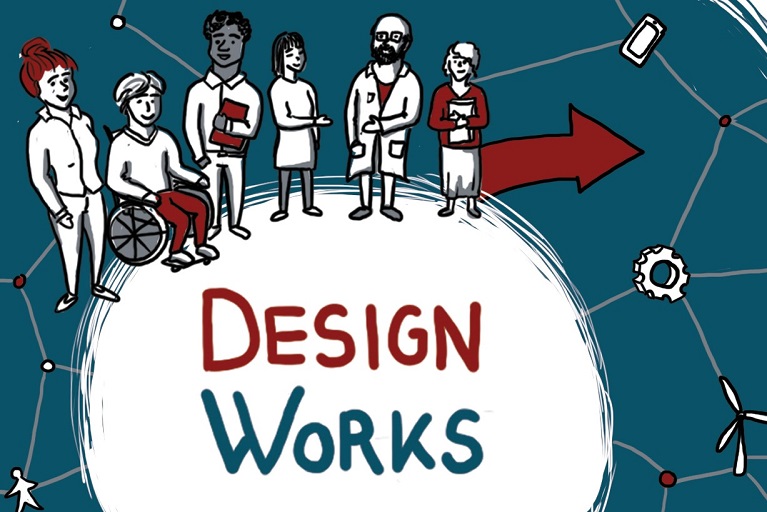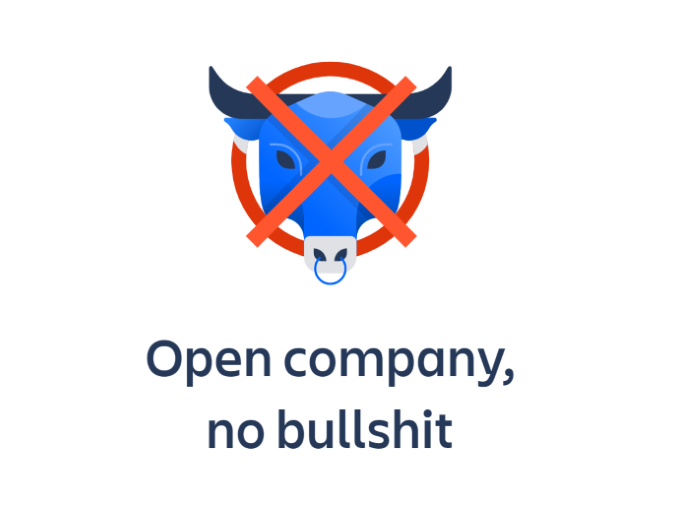BLOG - ARCHIVE

Customer-Focused Operating Model Transformation
Our client, a 16,000 person, £2 billion / $2.5 billion revenue subsidiary of a global construction giant, was facing declining market share and profitability. With urgent pressure to reverse this trend, the company opted for a strategic transformation rather than relying on cost-cutting measures. Their aim was to redefine customer focus, create differentiated value propositions, and redesign their operating model to align with this new strategy.
We partnered with the client to facilitate and guide the transformation, building a combined consultant and client team to co-develop a new customer-focused operating model. Engaging over 300 people in testing and piloting new ways of working, we laid the foundation for a turnaround. Within two years, the company had regained market share and improved profitability.

Embedding Sustainability to Drive Innovation
Our client aspired to play a significant role in transforming agriculture to feed a growing global population, fight climate change and regenerate the environment. With a clear strategy centered on empowering farmers and driving innovation, this Fortune Global 500 Agtech company faced a challenge: how to embed sustainability into its business in a way that delivered measurable impact.
The corporate sustainability function, which had grown organically, lacked a clear mandate and alignment across the organization. Its role in translating ambitious sustainability goals into financially viable business models was not defined.
We guided this client through a collaborative process to identify critical organizational capabilities, understand capability gaps, and align stakeholders on function’s role. With a redesigned sustainability function and shared understanding of how business units and functions would work together, the company successfully launched its sustainability strategy. Today, it remains focused on driving both short-term results and long-term impact.

Transforming Supply Chain for Growth in New Markets
A global food and nutrition leader recognized that achieving its ambitious growth plans required changes to its supply chain organization. Their strategy focused on driving growth through acquisitions to develop new customer channels in some regions, while maintaining operational excellence in established markets. The supply chain function would play a pivotal role in integrating acquisitions and meeting the needs of emerging markets.
We partnered with this client to evaluate strategic priorities, define critical capabilities, and establish design principles to guide the design of their new supply chain organization. The result was a clear roadmap, strong internal alignment, and a leadership team ready to implement a more agile, customer-focused operating model.
Read more … Transforming Supply Chain for Growth in New Markets

Performance Turnaround through Operating Model Redesign
Our client, a major provider of academic and vocational qualifications, was under pressure to turn around several years of underperformance and the fallout from a failed restructuring that had introduced unnecessarily complicated ways of working. Increased competition, government funding cuts, and a misaligned product portfolio left the organization struggling to regain stability.
The client engaged us to design a simpler, more effective operating model that would reduce people costs by 20% while setting the organization up for long-term growth. Over a structured 9-month program, we partnered with leadership and engaged over 200 stakeholders to deliver a streamlined, scalable organization. The resulting design enabled growth and sustained operational excellence.
Read more … Performance Turnaround through Operating Model Redesign

Redefining the Role of Corporate Development
Our client, a global leader in metal processing and recycling, wanted to clarify the future role of its Corporate Development function. This function had been instrumental in shaping an ambitious new strategy, but its future focus and orientation had to be reviewed and reshaped. The company engaged us to help define how Corporate Development could best contribute to the achievement of the company’s purpose and strategy.
Through stakeholder dialogues and a two-day workshop, we helped affirm the department’s role in business development, advisory and governance, clarifying the mandate to focus on long-term strategic growth and support business operations without becoming too involved in day-to-day execution. The result was a clear and strengthened role that has enabled the company to stay ahead of industry trends and successfully deliver on its strategy.

Designing Organizations for Sustainability
Today’s corporate organizations are powerful entities, a collective of individuals with a shared purpose capable of remarkable achievements, from developing advanced AI technologies to launching next-generation space explorations or pioneering renewable energy solutions. But with great power comes great responsibility. The corporate world plays a pivotal role in tackling some of the world's most pressing challenges, as outlined by the United Nations Sustainable Development Goals (SDGs). The path to sustainability is not just an option but a necessity for businesses aiming to make a significant, positive impact on our planet and society.

Doing Org Design Right from Day One - Part 2
Part 2 The organization as a whole system
In part 1 of this blog, I argued that organization design is ‘all about the people’ and also ‘all about the work’. When you bring these principles to life in an organization design effort, you’ll have a good chance of creating change with a real impact.
At Orgdesign Works, there’s another fundamental idea that we always bring to organization design projects: to consider the organization as a whole system. This second part of the blog describes 2 typical cases that leaders present, and how considering the whole system is a way to develop solutions to each of those cases.

Doing Org Design Right from Day One - Part 1
Part 1 People and Work
In my consulting work, I’m a witness to the incredible potential within organizations. They are filled with smart, talented individuals fuelled by a shared motivation to make a positive impact on the world. Frustratingly, this talent and enthusiasm sometimes collides with organizational barriers such as unnecessary bureaucracy, multiple reporting requirements, and internal politics. Companies might address these issues through investment in training, leadership development, and culture change initiatives, but often the transformation they are looking for remains elusive. How can organizations bridge the gap between aspiration and real results?

To Speed Up, You Must Slow Down - the Organization Design Paradox
Today’s leaders increasingly need to adjust their strategy in ‘real time’. This can create mis-alignment throughout their organization, because such rapid or repeated change calls into question the way teams are structured, how roles are defined, how performance and governance is enabled and measured, and whether previously successful behaviours will be right for a new reality.
Read more … To Speed Up, You Must Slow Down - the Organization Design Paradox

What I’ve Learned in the Last Year about Organization Design
I’m not the first (and won’t be the last) person to point out that we’ve just been through a dramatic if not seismic period of disruption across pretty much every sector of society and the economy.
We are undergoing regular and repeated ‘shocks’ caused by global pandemic, climate emergency, extreme weather events, protest and political fracture. This has been particularly acute over the last 12 months and it seems any notion of ‘normal’ will be a pipe dream for some time to come.
Read more … What I’ve Learned in the Last Year about Organization Design

Is Hybrid Working the Future? How to Make it Successful
If the transition to a more remote way of working feels like a seismic shift, you are not alone. Before the pandemic, only around 50% of companies allowed employees to work from home – now it is more than 99%, according to a Josh Bersin Academy report.
In conversations with our client network, we heard about both success stories and hardship. However, the common challenge is the complexity of navigating a situation that never happened before.
Read more … Is Hybrid Working the Future? How to Make it Successful

How to Design your Post-Merger Organization
Every merger starts with strategic intent.
If you are involved in supporting a merger or acquisition, how well do you understand the strategic intent of the transaction? Any well-planned press release will mention the strategic benefits of the merger.

Finding the Best Organization Design Consultant
Finding a qualified consultant can be challenging. When you need professional consulting support for an important project, are you scrambling to find the right fit?
Maybe you trust your gut feeling, rely on word of mouth recommendations, review their website, or invite them to pitch in a “beauty contest”.

Buurtzorg's Back Office
Recently at the Mannheim Drucker Forum I listened to a talk from Jos de Blok, Founder of neighbourhood nursing group Buurtzorg. Maybe you’ve heard of Buurtzorg, a Dutch company that is leading the way in transforming healthcare with an organization model based on purpose and self-management principles?

Talents and Capabilities for the Organization of the Future
It’s not long now until our annual European Organisation Design Forum Conference. I’m looking forward to connecting, exchanging and getting inspired.
Read more … Talents and Capabilities for the Organization of the Future

Creating Diverse Organizations
I’m always on the lookout for ways to embed changes into organization processes so that behaviour changes by design, rather than trying to influence individuals to change.
Here are some valuable resources for you about creating diverse organizations with practical tips and solutions that you can really implement.

Company Values and Technology
I’ve just been to the Atlassian Open in Vienna. Atlassian is a company that provides software tools to help teams “unleash their full potential”. To me, they are a fascinating company because they have developed and openly share people practices that enable great teamwork and drive their values.

Designing for Trust
My work focuses on building trust into the system to create a trust-based way of working. I will help you to apply design criteria to elements of the organization such as structure, processes and policies. If the criteria include trust, for example, then a trust-based culture is likely to be one outcome of the organization design process.

Leadership Upside Down
If you want to redesign how you work in your team, I will introduce you to a variety of techniques that make teamwork surprisingly more effective. I can share many examples of how other companies changed the way they organize and work. You will try different approaches and then decide what and how to integrate into your daily work by creating your own prototypes.

What if Your Employees Trusted the Company?
Surprising news! The 2019 Edelman Trust Barometer found that people trust their own employers more than any other institution, 75% of respondents said they trust "my employer", that's more than those who expressed trust in government, business in general, NGOs or the media.
